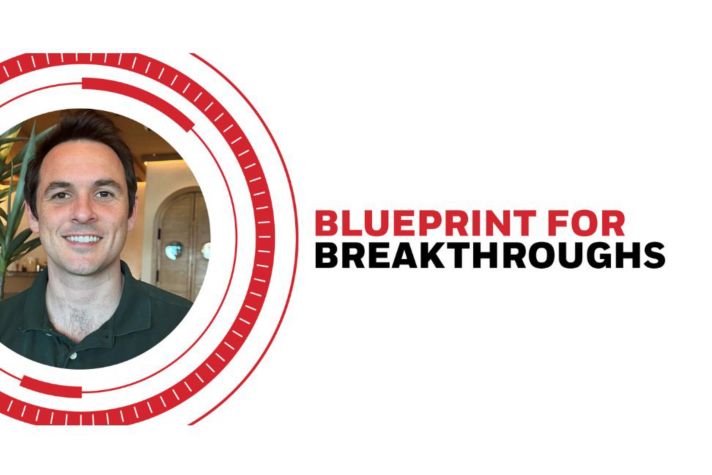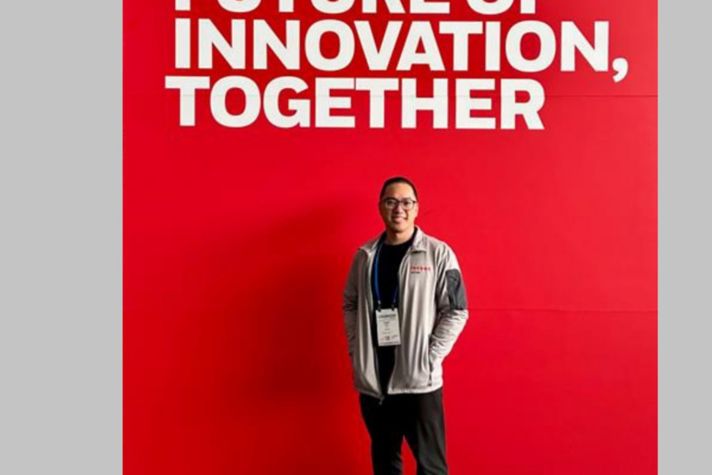-
Global
-
Africa
-
Asia Pacific
-
Europe
-
Latin America
-
Middle East
-
North America
- |
- BUSINESSES
- |
- Contact
- |
-
Global
-
Africa
-
Asia Pacific
-
Europe
-
Latin America
-
Middle East
-
North America
- |
- BUSINESSES
- |
- Contact
- |
You are browsing the product catalog for
You are viewing the overview and resources for
- News
- Meet an Engineer Whose Work Helps Power the Semiconductor Industry
Meet an Engineer Whose Work Helps Power the Semiconductor Industry
Futureshaper Hannah walks us through a day in the life as part of a team making high-purity materials for use in semiconductors.
Semiconductors power just about every device you use every day, from your phones to your cars. The semiconductor industry is projected to become a trillion-dollar industry by 2030.
Manufacturing semiconductors is complex, and it requires a special blend of technologies and processes.
Hannah Roberts knows this well. She is a process engineer at Honeywell’s facility in Spokane, Washington, one of Honeywell’s three major semiconductor materials centers focused on research and development (with the other two locations in Sunnyvale, California; and Shanghai, China).
Get to know more about what Hannah does and what a day in the life at Honeywell looks like in the world of process and materials engineering.
What products do you work on?
Hannah: “Our teams make brass cathodes and anodes for the semiconductor industry. These parts are used in a process called lithography, where a laser etches patterns onto silicon wafers to create computer chips. My role involves overseeing the production of these parts, ensuring they meet high purity standards and working with various teams to improve our processes.”
How did you get into this field? What inspired you to work with these materials?
Hannah: “I studied metallurgical and materials engineering. I've always been interested in metals manufacturing and processing. When I found this job at Honeywell, it felt like a perfect fit because it allows me to work with a variety of metals and processes. It's like a playground for a metallurgist!”
Can you walk us through a typical day in your life at Honeywell?
Hannah: “After meeting with my team to discuss production updates, I head to the manufacturing floor to work with operators and machinists on any issues or improvements. I also collaborate with teams in our lab for additional testing and work with the research and development team on new projects."
The work you do directly supports the semiconductor industry. Why is the purity of the materials you work with so important for semiconductors?
Hannah: "In semiconductor manufacturing, even tiny impurities can affect the flow of electrons in a computer chip. This can impact how well your phone, computer or car function. That's why we strive to produce extremely pure materials to ensure the chips work effectively.”
What advice would you give to someone interested in pursuing a career in this field?
Hannah: “Find work that you're proud of and don't be afraid to ask questions. If you're learning a new process, try to get hands-on experience and learn from the operators. The semiconductor industry is growing, and there are plenty of opportunities for engineers who are passionate about this.”
What’s most exciting to you about your work at Honeywell?
Hannah: “We're really poised for growth here in Spokane. We're pushing toward more advanced processes and using newly developed technologies to continuously improve our quality and processes. It's an exciting time to be part of this team!”
Learn more about how Honeywell can help semiconductor manufacturers with innovative semiconductor materials.
Editor’s note: Since the interview took place, Hannah has taken on a new commercial role at Honeywell in semiconductor materials.
Copyright © 2025 Honeywell International Inc.




